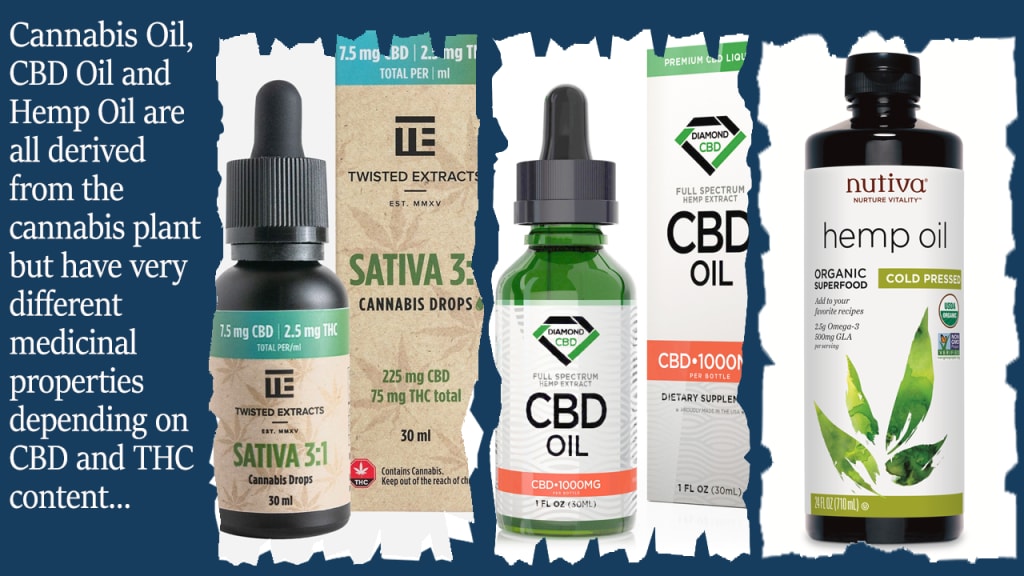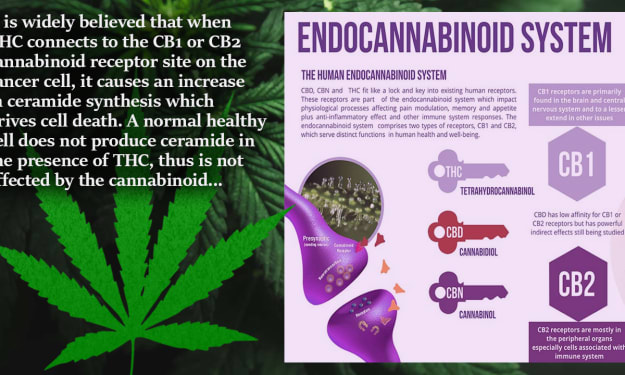Cannabis Oil in the fight against cancer
How are CBD and Hemp Seed Oil different?

Much has been written about the amazing healing powers of the cannabis plant in the last few decades with a large volume of scientific work available to back it up, leading to a global movement to see cannabis derivatives legalised worldwide for medical purposes, with cancer treatment being one area to have seen huge advances.
The cannabis plant contains at least 85 different types of cannabinoids, active chemicals that create drug-like effects throughout the body, many of which have shown to be hugely beneficial in treating some types of cancer.
A flowering plant with three main species, cannabis contains cannabinoids such as CBC, CBD, CBDa, CBG, THC and THCa which offer a potent treatment in the fight against cancer.
The three main plant species are cannabis sativa, indica and ruderalis. On average indica has higher levels of THC compared to CBD, whereas sativa has lower levels of THC to CBD.
CBD (cannabidiol) is known to relieve pain, lower inflammation and decrease anxiety without the “high” of THC (tetrahydrocannabinol), the primary psychoactive ingredient in cannabis.
The impact of these cannabinoids in treating cancer symptoms, as well as the side effects of cancer therapies, is so favourable that cannabinoids are synthesised for legal, prescription use in treating cancer.
Dronabinol and Nabilone (Cesamet), two synthetic pill forms of THC, are widely used to treat nausea and vomiting associated with chemotherapy.
The most potent of three main cannabis derivatives, which include marijuana (the flower of the plant) and hashish (a resin), Cannabis Oil is the most concentrated and is extracted from sativa or indica plants.
And it is this Cannabis Oil that is the most powerful derivative used to treat cancer, although due to the THC content it remains illegal or tightly controlled in many countries around the globe.
Obtained by separating the resins from cannabis flowers using a solvent extraction process, Cannabis Oil has varying amounts of CBD and THC, which set it apart from CBD Oil and Hemp Seed Oil.
Although both CBD Oil and Hemp Seed Oil are derived from the cannabis plant, they are different products in that they do not contain the THC cannabinoid responsible for cannabis’ psychotropic effects, but also its potency as a cancer treatment.
The key to understanding what constitutes Cannabis Oil is to learn what hemp is compared to marijuana, which contains THC concentrated in the buds and led to cannabis being illegal throughout the world for many decades... a situation which has now relaxed in many countries.
Cannabis plants engineered as marijuana contain levels of THC ranging from 3% to 20%, while plants grown for industrial hemp contain only trace amounts of THC.
Products made from industrial hemp are supposed to contain less than 0.3% THC, which is the legal amount to buy, consume, sell and ship the product. This 0.3% is the standard to distinguish between what is classified as “hemp” and what is classified as “marijuana”.
Cannabis Oil is produced by solvent extraction of marijuana or hashish. After filtering and evaporating the solvent, a sticky resinous liquid with a strong herbal odour remains.
Fresh, undried plant material is less suited for Cannabis Oil production because much THC and CBD will be present in their carboxylic acid forms (THCa and CBDa), which may not be highly soluble in some solvents.
A wide variety of solvents can be used for extraction, such as chloroform, dichloromethane, petroleum (naphtha, benzene, butane, methanol, ethanol or isopropanol) and olive oil. Currently resins are often obtained by extraction with super-critical carbon dioxide.
Although Hemp Seed Oil has many beneficial properties it is not the same as CBD Oil, however they are often confused because both are low in THC and contain CBD.
While Hemp Seed Oil (or Hemp Oil) does contain low levels of CBD, typically less than 25 parts per million, CBD extracts are produced either directly from cannabis flowers that are up to 15 per cent CBD or indirectly as a co-product of the flowers and leaves that are mixed in with the stalks during hemp stalk processing for fibre.
Hemp Seed Oil is produced by simply pressing or grinding the seeds at a temperature lower than 50°C and then extracting the oil, a procedure easy to implement and requiring no special equipment or solvent. Hemp Seed Oil is rich in nutrients and is a good addition to any diet, but only contains very small amounts of cannabinoids.
There are a number of ways of extracting CBD Oil from cannabis. If the plant contains only CBD (such as industrial hemp or a high-CBD strain) the extraction methods are simple and require little equipment. If the plant material contains THC as well as CBD the process to separate CBD from other cannabinoids is more complex and generally requires professional equipment.
The most common methods for extracting CBD Oil use some type of solvent. This can be a liquid solvent, CO2, or an oil solvent. The difference in the price of CBD Oil and Hemp Seed Oil results from the extraction techniques used to produce the cannabinoid-rich variety.
CBD Oil extracts tend to be thicker and therefore more difficult to handle. For this reason, they are often mixed into a Hemp Seed Oil base.
Cannabis Oil... containing THC, CBD and other cannabinoids, is believed to be the most potent in fighting cancer and remains illegal in large parts of the world because of its THC content.
CBD Oil offers a legal way to acquire a cannabinoid-rich alternative to Cannabis Oil; while Hemp Seed Oil is low in cannabinoids but is rich in other nutrients such as Omega 3 and 6.
About the Creator
Steve Harrison
From Covid to the Ukraine and Gaza... nothing is as it seems in the world. Don't just accept the mainstream brainwashing, open your eyes to the bigger picture at the heart of these globalist agendas.
JOIN THE DOTS: http://wildaboutit.com






Comments
There are no comments for this story
Be the first to respond and start the conversation.